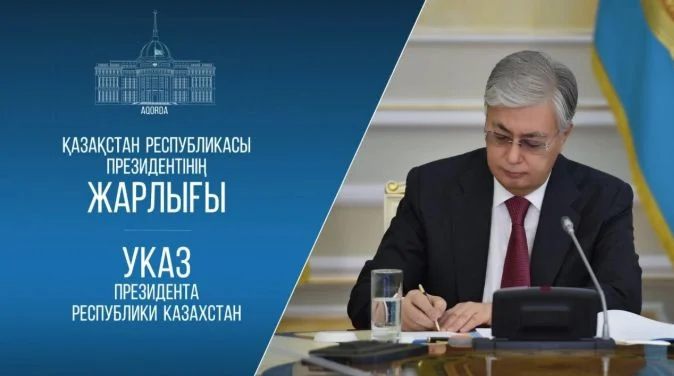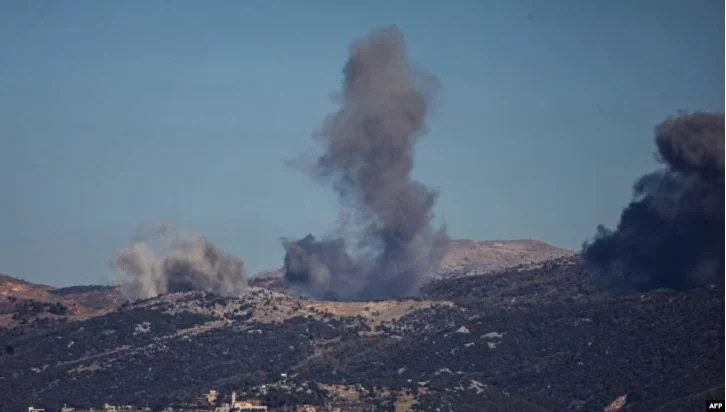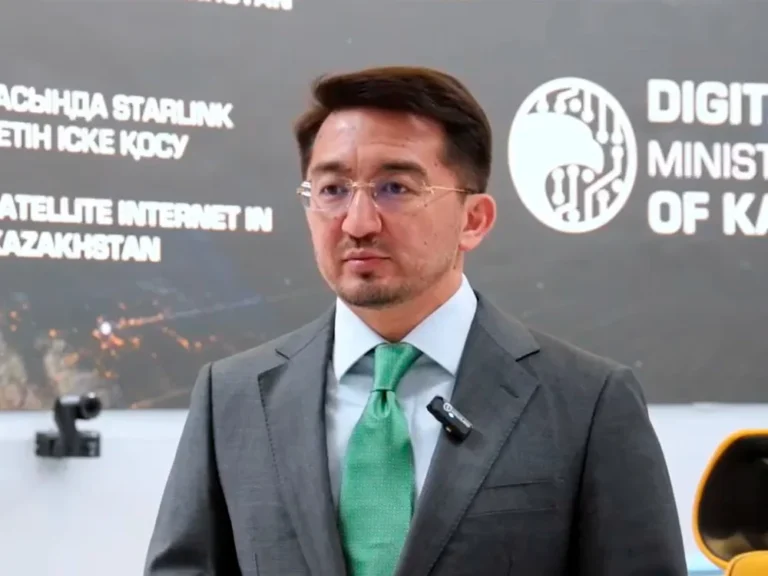DOOMED TO TRANSIT

Dosim Satpaev
“Big money loves big silence!” This thesis is known to many people as well as it is known that this type of silence was followed best of all in many offshores. But a serious international scandal between Liechtenstein and Germany because of thousands of German functionaries and managers, who lead out their shadow earnings through false funds into the princely bank of Liechtenstein, threatens with big problems for all amateurs of “shadow money-box”. The hand wheel of the scandal gathers speed. Following German’s example, other countries displayed curiosity not only for offshores, through which trillions of dollars flow as a mighty river, but also to Switzerland, which etalon of the bank’s secret begins to go into history. It is difficult to imagine that the governments of the CIS countries rushed to study the offshores, to shoot the tax evaders and corruptionists. Who would cut the branch on which many of those, that head the government sit?
But if to proceed from the fact that most of those who love offshores and Swiss banks are and remain those representatives of political and business elite of post-soviet countries, then the untwisting of the hand wheel may touch all of them. The General Secretary for the Economic Cooperation and Development Anhel Gurria came out criticizing not only Liechtenstein, but also Monaco and Andorra, which are, following his words, the last stronghold of the “tax evaders” from the former list of the seven “tax paradises”, which do not want to cooperate in the questions of bank secrets. Besides, there are those 4.2 million Euros, which the German reconnaissance has paid to the informant from the Liechtenstein bank for the disk with the data about many German tax evaders. And this may become a powerful stimulus for the other ordinary clerks of the banking system all over Europe, who would not care a straw about the banking secrecy.
Naturally, Kazakhstan would not be an exception, bearing in mind that namely the offshore companies are the owners of the most of our enterprises and fields. And the active drain of capital from the country took place during all dim 90-ties namely in the West direction. So, according to the data of American weekly “Forbes”, 8 Kazakh people have been entered into the list of the richest people of the planet, most of them kept their money not at “ValutTranzitBank”. The most interesting thing is that among them are not only businessmen, but also state employees, as, for example, Bulat Utemuratov. Indeed, one does not know where business starts, and where state power finishes, and vice versa.
No doubt that some attempts were undertaken in order to return this money through two actions on the legalization of the capitals and property. Though its results did not correspond to the scales of the “wild privatization” and unruly corruption in the hard 90-ties. And if the number of offshores will reduce till the critical level, then may be our government would like to hold the third action on the legalization of shadow capitals? In Kazakhstan it has become a “good” and “an old” tradition.
But, to all appearances, our government has other urgent matters. “All went to the front” to struggle with the consequences of rising the world economic violations. It reached the very point, which, according to the words of the financier George Sores, the present crises on the world market is not only a simple collapse, but the completion of 60-years long credit boom based on dollar, as the whole world’s reserve money. Those, who consider that the USA’s epoch as the main center of the economic power has finished, echo him. The West is getting more and more under the influence of the new economics of Asia, Near East and even Russia. A tiny bit time and, as for Yegor Gaydar’s statement, China will reach the conversance of its currency, which will make Yuan the third reserve world currency. All this speaks of the fact that the gradual change of the hegemony, two of which are the geographical neighbors of Kazakhstan. The main thing here is not to get in between the “hammer” and the “anvil”. This means that the policy of “distance partnership” of our Republic with Russia, China and EU will approve itself.
At that the more one watches our state structures in the condition of the economic stagnation, the more he gets convinced in the rightness of people’s adage that two not beaten men are given instead of one beaten. Not being “beaten” by different crises, our functionaries work following “at random” method, by that creating the imitation of stormy activity. If this also does not bring results, then they begin to accuse one another in all deadly sins, trying to switch as quickly as possible. By the way, this activity has become popular kind of nomenclature sport, which has turned our departments into the tennis courts, where two or more players throw balls into one another before the eyes of multitudinous spectators and get back blow for blow. Let us take as an example the recent accusations of law enforcement structures, which have been uttered in the presence of the president, or the attack of the minister of finance of the Republic of Kazakhstan to the activity of SDF ”Kazyna”.
And few months ago great hopes were laid on JSC “«Kazyna» Sustainable Development Fund» on the rescue of not only the building sector, but also on the advancement of run projects, which have to make Kazakhstan more competitive. We can refer it to the traditional intradepartmental competitiveness, or to personal sympathies and antipathies of the given structure’s leaders. But the fact that our state’s departments began to pay more attention to such kind of argues, than to the work on the withdrawal of the country from economic crises, pricks up us.
It is amazing that not having made any conclusions from the statement of the minister of finance, the government immediately suggests a new project on state purchasing of housing for stabilization of the construction market. Naturally, functionaries conceal with good intentions, but nobody has explained why the mechanism of the state support of the construction market did not response, and where are the first 4 billion $US. Or let’s take the recent errand of the prime minister to give those fields, which were taken from careless and unfair users to socio – businesslike corporations (SBC). Though SBC still reminds a lottery ticket. Nobody knows whether it will win or not.
There appears a feeling that for all our functionaries it is more important to imitate a stormy activity (ISA), and it is not important that it may cost very expensive, as it happened with “Kazyna”. At that the functionaries do not forget to look for lightening rod elsewhere. It is more like that this ungrateful role will be given to the banking structures, who have already been blamed in puffing up soaping bubble and inhibiting the governmental program of financing the construction segment, as well as in the poor support of small and medium business. The next in the “scapegoat” list are mining companies, mainly foreign, from which, as it has appeared, is easy to make “the people’s enemies”. But here I’d agree with Zeinulla Kakimzhanov’s opinion that it is not banks to be blamed, but the crises of managing the economic crises on the part of the government itself, in the result of which we have puffed a pile of “soap bubbles”. At least let’s take the minister of finance’s statement for the year of 2007 the sum of unused budget of the Republic has made up 26 billion tenge. In the local budgets the situation is an analogous one. If our sensibly functionaries can’t waste money, then can we expect that they will sensibly earn money not having any raw materials? Or the recent statement of financial police on the fact that officials from the Ministry of Energy and Mineral Resources are blamed in taking no actions, which caused the harm to the state at the sum of 40.9 billion of tenge. With such “officials” the country will be on the edge of survival at any budget surplus.
Now the supporters of Friedrich Von Hayek and his conceptions of commercial marketplace and state non-interference into economy suffer defeat from the apologists J.M. Keynes and his model of regulating the economy with the participation of the state. But Kazakhstan is distinguished from western countries in the fact that we never had a full-fledged market economy. The boundaries between business and state have always been transparent. Protectionism, “covering” and corruption decreased the paces of development of market competition in the country. If in West a state could, to some extent, interfere into the economic processes, at that staying the guarantee of following the rights of ownership and civilized competitiveness, then our state mechanism was often used to protect private interests of separate elite and financial and industrial groups. Let’s take, at least, an interesting state decision on the limitation of sugar import into Kazakhstan. All is well, but it immediately arrests one’s attention that this decision has appeared exactly after a regular division of sugar market in the Republic, in the result of which a new monopolist has emerged on the horizon.
It comes out that most of problems of the economic development, whether we like or not, rest again the imperfection of political system, where those who are more near to the “body” run the show. Though some specialists in politics already speak of the fact that transit period in Kazakhstan has already finished. But what are the criteria that it has already finished? It is most probably that it is about the creation of stable and long-term plan of economic and political systems. In that view, Kazakhstan has not yet passed its transit period. Let’s take at least economics. The world market has just sneezed, let it was loudly, and immediately the financial system of the country began to fever. The “soap bubbles” begin to burst. The problems have unearthed and the government cannot take them under control until now.
Concerning the political system, here we are at crossroads. It is important to know now to what type out of three refers the political system of Kazakhstan: to mobilization, conservative or modernized, and where should move further. From this depends the level of system legitimacy in future. And one of the final goals of political reforms is decrease of personal factor for ensuring of stability and sustain of political system. Another problem is the fact that officials themselves fight with corruption. Officials themselves without the participation of civil society hold the administrative reform and unsuccessfully try to introduce electronic government. It is they who are going to hold the “audit painstakingly”, to return into the budget not opened up money. Though competitive economics cannot be without competitive state apparatus. And until we seek it, our transit will last long.






Все комментарии проходят предварительную модерацию редакцией и появляются не сразу.